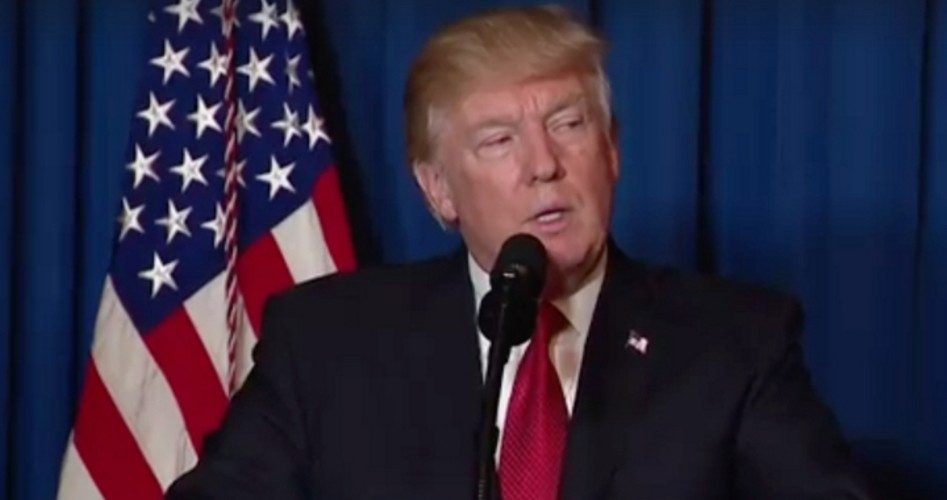
CNN and MSNBC used the word “impeach” or “impeachment” 222 times the day after the president’s former campaign manager Paul Manafort was convicted on charges unrelated to the campaign, and after his former personal attorney Michael Cohen pled guilty to violating campaign finance laws in connection with hush money used to keep the president’s past alleged sexual indiscretions quiet. Yet these liberal media giants had nothing to show for their efforts. A Rasmussen poll of 1,000 likely voters released after the inundation by CNN and MSNBC showed that half of them didn’t think the developments regarding Manafort and Cohen were likely to lead to criminal charges against the president.
Neither do Democrat leaders Representative Nancy Pelosi (D-Calif.), the former speaker of the House, nor Senator Richard Durbin (D-Ill.), the Senate minority whip. Pelosi said that impeachment of Donald Trump is “not a priority” while Durbin wants to wait until the Mueller investigation is complete “and then draw the conclusion from [it].”
Last Tuesday Paul Manafort was found guilty on eight charges including tax fraud that occurred years earlier. That same day Michael Cohen declared that he violated campaign finance laws at the president’s direction, for the “principal purpose of influencing the election.” Cohen was referring to a payment made to a porn actor and the purchase of rights to a story about a tryst the president allegedly engaged in with a former Playboy model a decade ago. Cohen also pleaded guilty to bank and tax fraud over his taxi medallion business, failing to report more than $4 million in income.
Not only are Democrat leaders and likely voters not interested in pressing charges of impeachment against the president, those claims have little merit on their own. As Patrick Buchanan noted acidly, “paying girlfriends to keep past indiscretions private is neither a crime nor a campaign violation.” And, of course, none of this relates to any Russian collusion by the Trump campaign in 2016. So Democrat leaders are staying away from the issue and likely voters are ignoring it.
Impeachment is provided for by the United States Constitution in three places: Article I, Section 2, Clause 3, which grants “the sole power of impeachment” to the House of Representatives with a simple majority vote required; Article I, Section 3, Clause 6, which grants “the sole power to try all impeachments” to the Senate, requiring a two-thirds majority for conviction; and Article II, Section 4, which declares that “The President, Vice President, and all civil Officers of the United States shall be removed from Office on Impeachment for, and conviction of, Treason, Bribery, or other High Crimes and Misdemeanors.”
Such power has rarely been used since the Republic’s founding. Actual impeachments of 19 federal officers have taken place by the House, 15 of whom were federal judges, one Cabinet secretary, and two presidents: Andrew Johnson and Bill Clinton. In Clinton’s case the House impeached him for perjuring himself and obstructing justice.
But following the Constitution closely, and taking into account the intentions of the founders who crafted those three Constitutional powers, one finds that, rather than restricting impeachment just to outrageously offensive acts, the founders considered the phrase “high crimes and misdemeanors” to cover a very broad range of crimes. They included perjury, abuse of authority, bribery, intimidation, misuse of federal assets, failure to supervise, chronic intoxication, dereliction of duty, conduct unbecoming the presidency, and refusal to obey a lawful order, among others.
For example, Benjamin Franklin asserted that the power to impeach was necessary for those times when the President “rendered himself obnoxious” and “regular punishment … when his conduct should deserve it.” James Madison said that “impeachment … was indispensable” to defend the republic against “the incapacity, negligence or perfidy of the chief Magistrate.”
This means that, should the Democrats regain a majority in the House in November, they will have an easy time of it finding the president guilty of all manner of offenses worthy of impeaching.
But the dream of a “Blue Wave” by Democrats engulfing the House in November has continued to fade. Rasmussen Reports has been tracking that fading hope ever since the first of the year when, in its General Congressional Ballot findings, the Democrat advantage has fallen from double digits to exactly zero following last Tuesday’s revelations and Wednesday’s flood of impeachment hopes the next day by the mainstream media. Wrote Rasmussen: “A week ago, Democrats held a 48% to 41% lead on the generic ballot. This is the first time the parties have been tied since May…. In early July, Democrats led by eight, their largest lead since January.”
What can reasonably be drawn from such revelations? One that may safely be made is that, try as they might, the mainstream media is unable to pin anything substantial on the president, and the harder they try, the more likely voters in November are ignoring their efforts.
Photo of President Trump: The White House
An Ivy League graduate and former investment advisor, Bob is a regular contributor to The New American magazine and blogs frequently at LightFromTheRight.com, primarily on economics and politics. He can be reached at [email protected].



